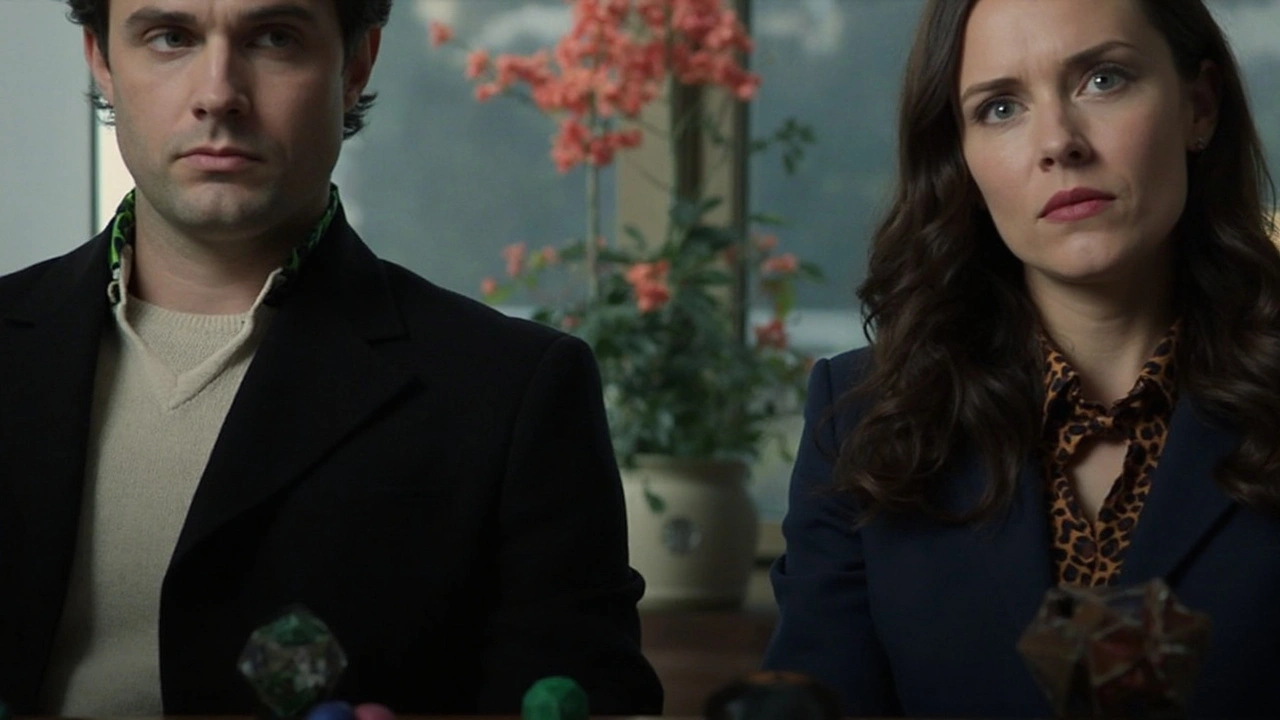Netflix’s YOU Exposes the Danger of 'Softboy' Culture in Modern Masculinity
 Apr, 26 2025
Apr, 26 2025
Netflix’s YOU: The 'Softboy' Mask Hides Real Threats
There’s something chilling about Penn Badgley’s Joe Goldberg in Netflix’s YOU. You almost want to root for him—he’s that guy who reads poetry, dotes on his kid, and listens to women’s feelings. But while plenty of shows have tackled the alpha-male villain, YOU aims its spotlight straight at the heart of softboy culture, pulling back the curtain on how it lets dangerous men blend in unnoticed.
At first glance, Joe’s every move screams ‘nice guy.’ He recommends classic books, bakes scones, and talks like he’s been to every ‘man for feminism’ panel. But under the surface, he’s controlling and obsessive—using his charm not just as a mask, but as a weapon. He doesn’t need to raise his voice or slam a door; the manipulation seeps out in gentle nudges, strategic confessions, and a listening ear that’s always a little too interested in what comes next.
The fifth season flips the mirror on the audience. Maddie, a side character but a powerful voice, coins the phrase ‘softboy misogynist’ in one of her most memorable confrontations with Joe. She nails it: ‘You’re a control-hungry goblin under a nice guy smile.’ While there’s always been talk about toxic masculinity and its obvious traits—violence, dominance, lack of empathy—the Joe Goldbergs of the world slip past the radar far more easily. That’s the danger: softboy culture isn’t just about bad poetry and well-worn copies of Sartre; it’s about the cover it provides for entitlement and manipulation.

The Problem with Weaponized Niceness
So, why is this softness so threatening? Guys like Joe are masters at performing emotional openness. They’ll talk about their childhood wounds, share playlist after playlist, and even drop lines about smashing the patriarchy. But here’s the twist: all that sensitivity serves as a smoke screen. Behind it, entitlement festers. Joe doesn’t just want to be liked or loved; he wants to control the narrative and, by extension, the women around him.
Across the series, Joe exploits this ‘nice guy’ reputation expertly. Friends trust him and lovers let down their guard, all because he plays the part so well. Every grand gesture and thoughtful text message draws his targets closer—until they’re caught in the web. That’s what YOU wants us to see: the threat isn’t just brute force, it’s the subtle, slow-burn manipulation that makes people doubt their own instincts.
This isn’t just Netflix-level fiction. Look around—this breed of modern masculinity shows up everywhere, from dating apps to brunch tables. They quote feminist writers, share vulnerable Instagram captions, and attend protest rallies. But when challenged, their reactions—defensiveness, gaslighting, even cruelty—sound a lot like the classic toxic playbook, only reframed through flowery language and apologetic ‘growth’ chats.
- They apologize, but only to avoid being the ‘bad guy.’
- They support movements, but expect credit (and sometimes, intimacy) in return.
- They process feelings, but only as a way of controlling outcomes, not connecting genuinely.
Maddie’s call-out is rare because so few people recognize this brand of manipulation before it bites. And when abusers pose as progressives, it’s even harder for others to believe the victim. The softboy doesn’t look dangerous—he looks enlightened, sensitive, harmless. But for those caught in his orbit, the fallout is just as toxic as any ‘alpha male’ showdown.
In the end, Netflix’s YOU isn’t just about murder and obsession. It’s a gut-check about the masks people wear—and how the softest voice in the room may be hiding something much darker than we realize.